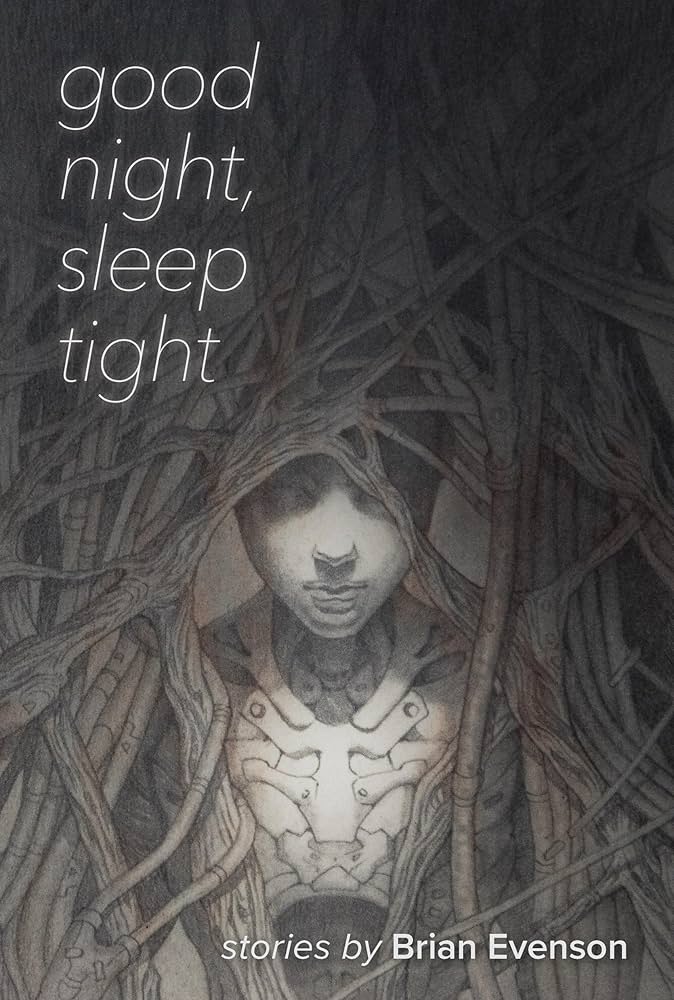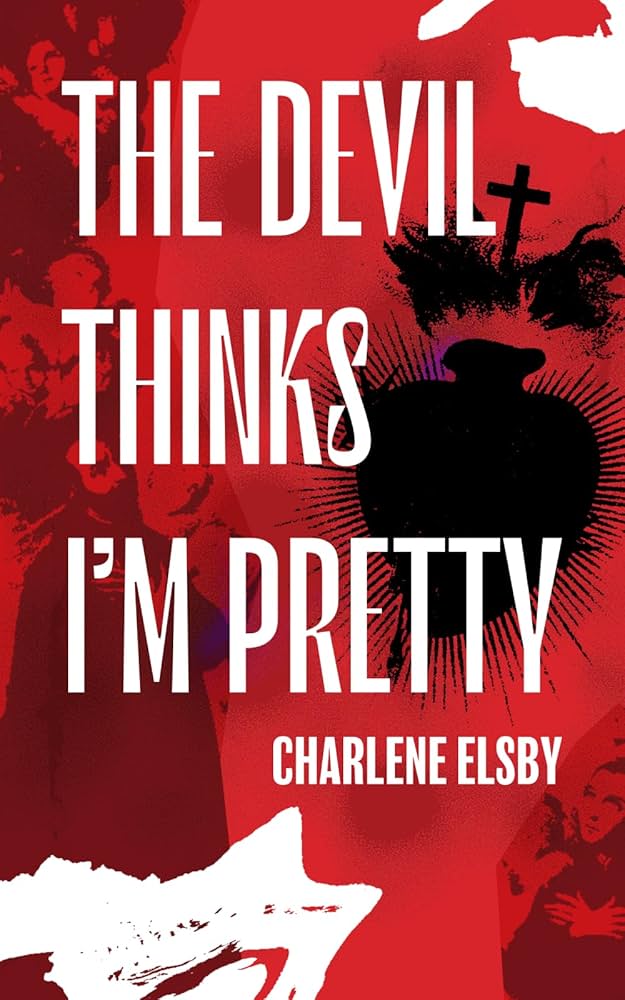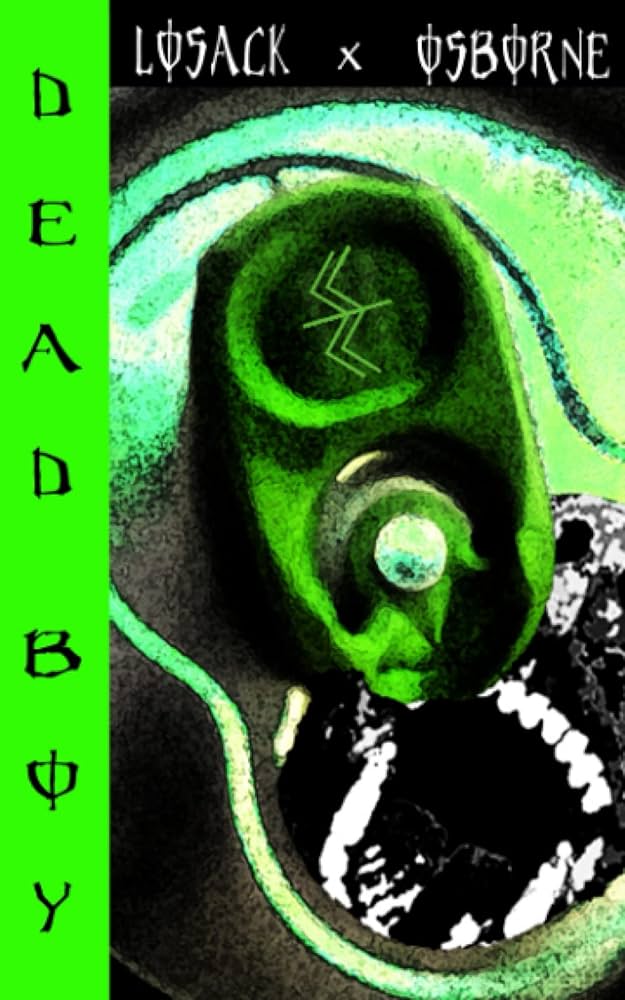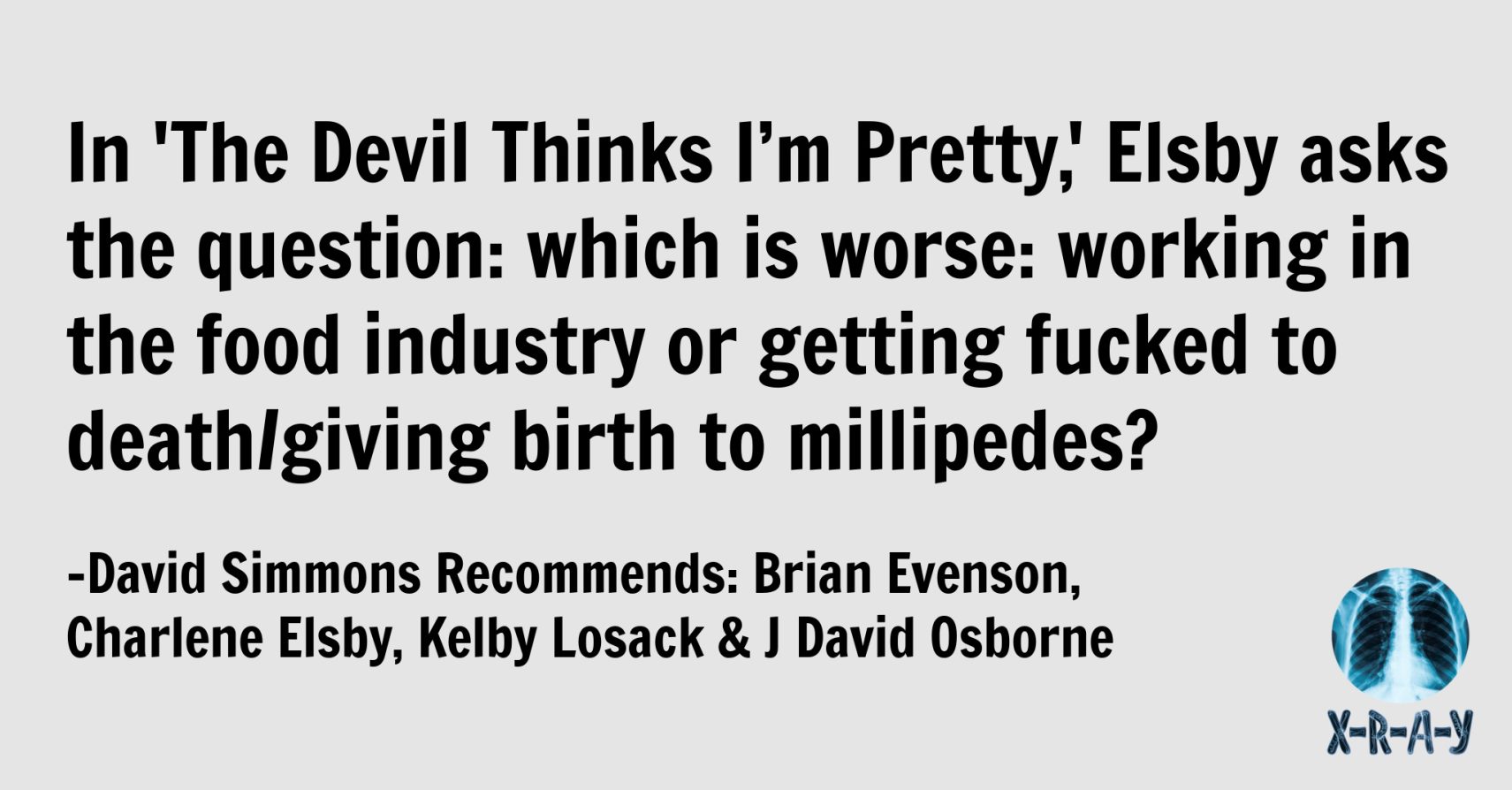 Brian Evenson, Good Night, Sleep Tight (Coffee House Press, 2024)
Brian Evenson, Good Night, Sleep Tight (Coffee House Press, 2024)
Brian Evenson is my favorite author of all time so I make it a policy to read whatever he writes.
Some of you may already know Evenson as the innovator and pioneer of the this-house-we-just-moved-into-has-more-windows-on-the-outside-than-on-the-inside-so-now-I’m-going-to-burn-it-down-with-my-family-still-inside horror genre. Whether it’s the crime noir-religious cult-horror-mystery Last Days or the schizophrenic-Mormon-fever dream of The Open Curtain, all he drops are bangers. His short story collections are my favorite though. Fugue State and Windeye are two of the best collections I have ever read. So you already know I was too hype to get Brian’s latest collection, Good Night, Sleep Tight.
One time, I heard Brian described as “too literary for horror” and “too horror for literary” and at the time, I remember thinking to myself, damn, that’s lame as fuck, so I stopped listening to whatever podcast it was and just drove in silence for a minute. What does that even mean? He can write really well so he’s too good for horror? TF? That’s disrespectful.
And yet, I understood what they meant in a way. Brian’s command of language is uncanny, and I imagine it has to do with his time growing up in the Mormon church and then his position in the church itself before he left/got kicked out. (You can read about the Brian Evenson origin story in like every article about Brian ever, and other people have done a way better job of breaking it down than me, but TL/DR, back in the day he got kicked out (?) of BYU and like, excommunicated (?) from Mormonism (?) because his first collection Altmann’s Tongue was way too gangster (not sure if this part is 100% correct but it’s how I imagine it happened) and some lame-ass student filed a complaint. I think. What I’m saying is that he uses language and pacing in a way that makes it read like a reverend from a strange religion in a different time and different universe wrote it. He will use unfamiliar words, or familiar words in strange ways. It’s something to do with the rhythm. And you’re never quite sure where you are exactly, as far as setting. You could be anywhere or nowhere.
Take this for example. There is a story in the collection called “Vigil in the Inner Room” and it opens with: By midday father had sickened again, and by nightfall he was dead.
This is already a crazy opening line, typical of Evenson. We know that the father has been getting sick and this time his ass died. But it’s the use of the words midday and sickened and nightfall that makes this line hit so hard. He could have used afternoon and got sick and night and the line just wouldn’t have hit as hard. But he didn’t, and because of this, his writing takes you to a different world, a different time. His specific combination of words is like a password that unlocks something inside of you that makes you feel like an early-9th century Chaldean peasant when you read it, eating a hard loaf of bread and sipping wine you made yourself.
Maybe I’m not explaining it right. Hold up, let me try again. Brian Evenson’s writing is like the first time you try PCP. That empty feeling where you don’t know who you are, that liminal space where suddenly your clothes begin to seem too small for you, so you wonder if your clothing has actually gotten smaller or if you have gotten bigger, and then you have crazy cotton mouth so you attempt to spit but you can’t spit that far so your spit lands on your North Face sleeve, and then you try to wipe the spit away with your bare hand, and you realize that you have lost the ability to sense things using touch, because you can no longer tell the difference between a spit-covered sleeve or the bare, dry material of the spit-less sleeve, and this makes you wonder if you will still be able to do your job when you clock in at work on Monday, and the whole time you have been thinking this you have been curled up in fetal position in front of a Panera Bread, so now you have to burn your house down with your family still inside it. This is how all of his short stories make you feel. Like you are trapped in a dissociative nightmare that never ends.
OK, but whole time, everybody writes book reviews about Brian’s shit. I want to do something a little different. I want to talk about just the opening lines to his stories and how he is the straight up GOAT of openers.
In rap music, this is called an opening bar. The opening bar makes the whole song to me. If you don’t come with something so hard that it immediately makes me run around the room in concentric circles screaming “OH SHITTTTTTT” then your music ain’t for me. I feel this way about books too.
An example of a great opening bar can be found in the classic motivational record “Cheese and Dope” by Project Pat. In “Cheese and Dope”, Project Pat begins the song with:
Out here slangin on this blade prayin that I don’t get cut
By these police makin raids, jumpin out and checkin nuts
Immediately we are transported to North Memphis, in the summer of 2001, where we have sequestered dope under our ballsack, praying that the police do not throw us up against a wall and frisk us, and we must know what is going to happen next to our hero, Project Pat. Will the nefarious MPD catch up to our hero? Will he make it off the blade in one piece? We have to know.
I feel the same way when I read Brian’s work. Take any story from Good Night, Sleep Tight. In “A True Friend”, the first line is: There are times when it hurts to be alive.
GYAT! That is a crazy opening bar. The reader has to know more. ISTG if somebody interrupts me before I find out what happens to the narrator I am going to CRASH OUT. Hold up, I’mma quickly flip to another story in the collection. OK, this one is called “The Other Floor”.
Sometimes at night–not every night, only rarely–the transition between being awake and dreaming would stretch long enough to become its own sort of time, a time in which it was impossible to know whether he was awake or asleep, a time in which, in the end, it didn’t really matter.
WHAT THE FUCK! That is nasty work. First of all, in anybody else’s hands that shit would have been a run-on sentence, but not Brian. That shit is CRAZY. We have to find out what’s gonna happen! We have no choice. This time-shifting weird almost-sleep-purgatory thing he is talking about sounds very interesting, but also, in the end it didn’t really matter. Why didn’t it really matter? Does somebody get killed or some shit? So it doesn’t really matter that this person experiences a dream-like state since they are gonna get bodied anyway? We have to know.
In conclusion, Brian Evenson’s Good Night, Sleep Tight is a healthy, homeopathic, all-natural alternative to smoking PCP and I implore you to get trapped in that dissociative nightmare as soon as you finish reading this.
 Charlene Elsby, The Devil Thinks I’m Pretty (Apocalypse Party, 2023)
Charlene Elsby, The Devil Thinks I’m Pretty (Apocalypse Party, 2023)
We define people according to what’s been done to them, not what they have done.
I have read this book a couple of times and this quote always stands out to me. Because I agree with it. At first, it sounds brutal, unforgiving. Unfortunate, even. That this is the way we are. And perhaps it is. But that doesn’t make it untrue.
In The Devil Thinks I’m Pretty, Elsby asks the question: which is worse: working in the food industry or getting fucked to death/giving birth to millipedes? Just kidding. But not really. The part I found the most horrifying is the abuse the unnamed narrator—living below the poverty line with a dead-ass mom—takes regularly from the people she encounters at school, in the trailer park she lives in, and in the terrible diner she works at. She links up with a few other troubled youths and they explore the psychosexual. And then some REAL serious shit goes down and she embraces her true nature and becomes what she was always meant to be. And all along she is keeping track of the people who wrong her, this poor girl on the margins of society. But where Elsby truly shines, is how we find ourselves really rooting for our narrator, cheering her on, even (ESPECIALLY) when she is burning down her trailer park with everyone in it.
 Kelby Losack & J David Osborne, Dead Boy (Broken River Books)
Kelby Losack & J David Osborne, Dead Boy (Broken River Books)
Brian Schuck’s girlfriend has just committed suicide and Brian is a mess. He has no job and owes money to a perverted gangster with an affinity for dog fighting and sexual violence. And then Brian’s dog—who is devastated from the girlfriend’s suicide—decides to stop eating. When Brian’s dog dies from self-inflicted sadness starvation, his buddy Handle has a brilliant idea, a way to bring the dog back to life. All they need is a bathtub of Monster energy drinks (for the electrolytes, flavor doesn’t matter) and some electricity and our boy can have his best friend back. Unfortunately, it’s too late for the girlfriend.
I’m a fan of Osborne and Losack’s solo writing, but when they get together it’s like Bun B and Pimp C. Eightball and MJG. Westside Gunn and Conway the Machine. It’s a classic out the gate.
In Dead Boy, you learn a lot about dog fighting while getting hit with the darkest punchlines. I love how all the characters just acknowledge the craziness, the zombie dog, and agree to never speak of it. And all of it gets recorded for Brian’s TikTok. Because that’s the only thing that really fills the empty hole inside Brian. The attention. The engagements. The likes.
It’s also very touchy subject matter, suicide, dog fighting, dogs dying and all that. Reading it makes you feel like Osborne and Losack were trying to outdo each other with every line. I asked them about that and Kelby texted me back: when you’re tryna make your homie go “broooooo that’s fucked up” you write crazy shit lol
Also, the dog’s name is Mike Jones.

